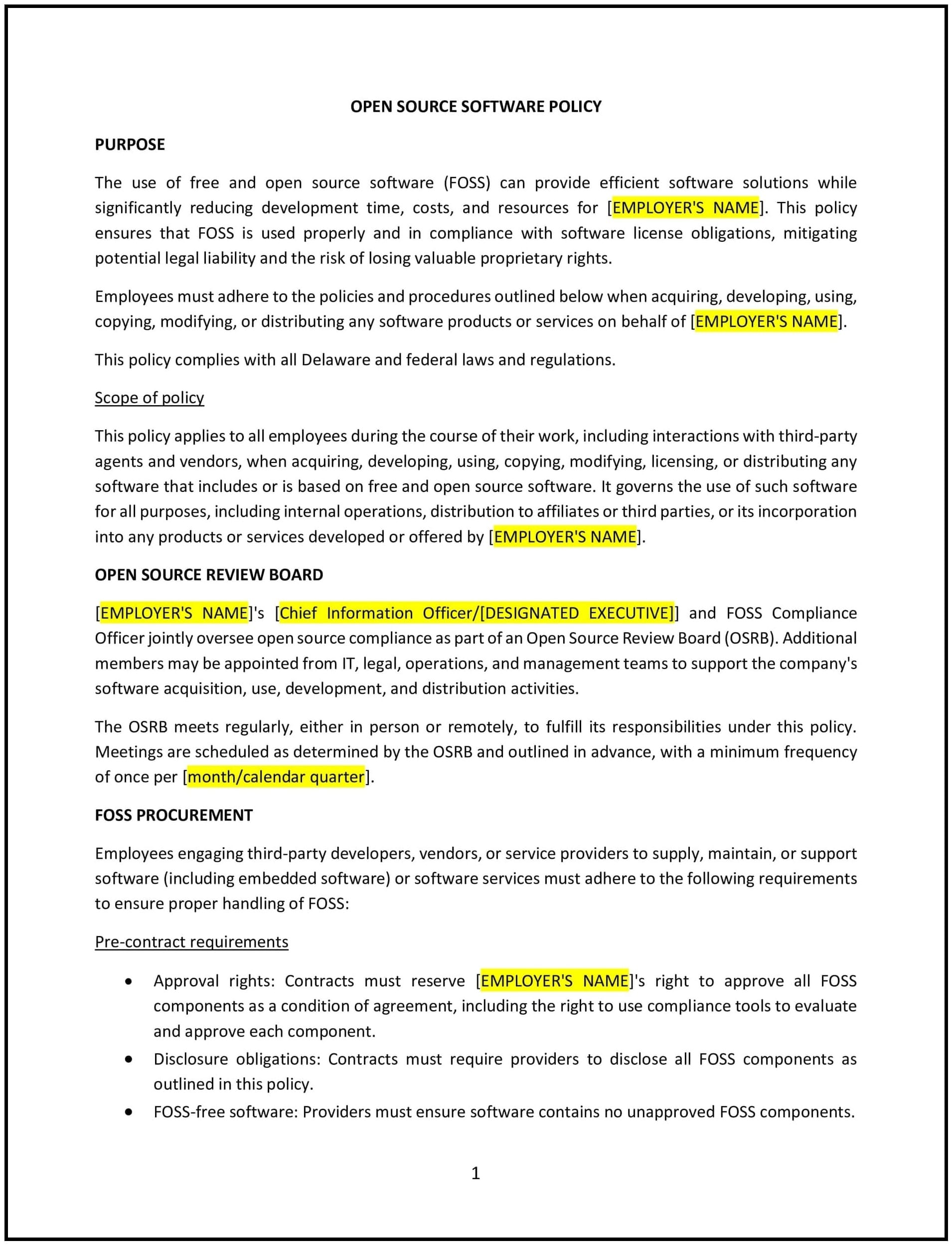Got contracts to review? While you're here for policies, let Cobrief make contract review effortless—start your free review now.

Customize this template for free
Open source software policy (Delaware)
An open source software policy helps Delaware businesses establish guidelines for using, contributing to, and managing open source software (OSS) to ensure compliance with licensing requirements, protect intellectual property, and mitigate security risks. This policy provides a structured approach to integrating OSS into company projects responsibly.
By implementing this policy, businesses can leverage the benefits of open source software while safeguarding their assets and ensuring compliance with Delaware laws.
How to use this open source software policy (Delaware)
- Define permitted use: Specify which open source licenses are acceptable for use in company projects and outline approval procedures for integrating OSS.
- Require license compliance: Ensure employees understand and adhere to the terms of open source licenses, including attribution or redistribution requirements.
- Establish contribution guidelines: Provide instructions for employees contributing to open source projects on behalf of the company, ensuring proper authorization.
- Mitigate security risks: Require security reviews of OSS before integration to identify vulnerabilities or potential threats.
- Maintain documentation: Keep detailed records of all OSS used in projects, including licenses, versions, and any modifications made.
- Train employees: Offer training on open source best practices, license compliance, and security considerations.
Benefits of using this open source software policy (Delaware)
This policy offers several benefits for Delaware businesses:
- Ensures compliance: Reduces legal risks by promoting adherence to open source licenses and Delaware intellectual property laws.
- Protects intellectual property: Prevents accidental disclosure of proprietary code or violations of licensing terms.
- Enhances security: Reduces vulnerabilities by requiring thorough reviews of OSS before integration.
- Encourages responsible innovation: Provides clear guidelines for leveraging OSS while maintaining company standards.
- Promotes transparency: Creates a centralized process for tracking and managing OSS usage across projects.
Tips for using this open source software policy (Delaware)
- Communicate the policy effectively: Ensure all employees understand the guidelines for using and contributing to OSS.
- Use tracking tools: Implement tools to monitor and manage OSS usage, licenses, and compliance requirements.
- Encourage collaboration: Foster responsible participation in open source communities to enhance the company’s reputation and technical capabilities.
- Update regularly: Review the policy periodically to reflect changes in OSS licensing standards, Delaware laws, or company practices.
- Monitor compliance: Regularly audit projects for adherence to OSS guidelines and address any compliance issues promptly.